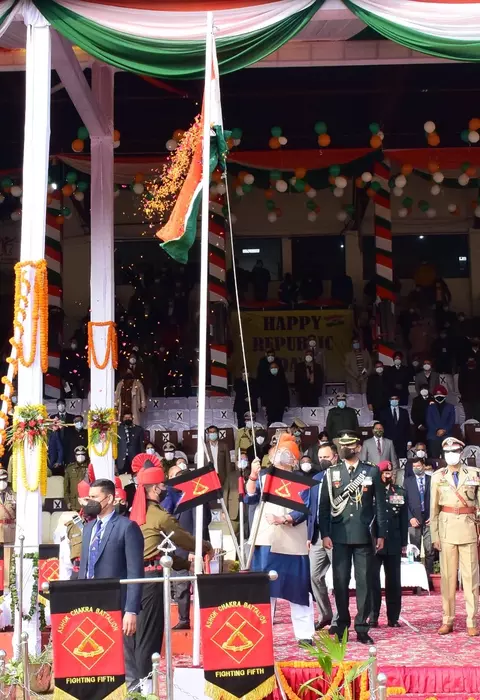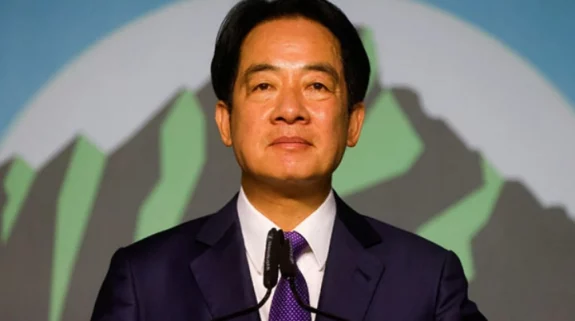Kashmir on this Republic Day, on Wednesday 26 January 2022, was in total contrast to the ghost-ridden valley 30 years ago. The Indian national flag fluttered across the valley and no untoward incident was reported from anywhere.
A day before, militants marked their presence with a grenade attack on a police vehicle at the crowded Hari Singh High Street in Srinagar and threatened to carry out more such attacks to sabotage the Republic Day ceremonies.
Police claimed to have identified and arrested the grenade-thrower with the help of high resolution CCTV footage.
Srinagar on Wednesday was nowhere close to the fear and turbulence witnessed in the remote past in 1990-95 and in the near past during Mehbooba Mufti’s government in 2016-18. The turbulent first fortnight of June 2018, which also saw prominent journalist Shujat Bukhari’s assassination at the Press Enclave in Srinagar, proved to be the end of a government that had been taken for granted by the militants.
Far worse was the situation in 1990-95. National flag would be hoisted on Independence Day and Republic Day under total curfew restrictions only in Srinagar and Jammu. Around a hundred civilians died in the violence between 19 January and 26 January in 1990. Four Indian Air Force (IAF) personnel were gunned down by JKLF terrorists at Rawalpora Chowk on 25 January 1990. Scores of civilians were killed at Gawkadal and in Handwara.
In January 1992, BJP announced that would culminate its Ekta Yatra from the extreme south to extreme north with hoisting of the tricolour at Lalchowk in Srinagar on Republic Day. As soon as the party’s senior leaders Murli Manohar Joshi and Narendra Modi arrived in Srinagar amid unprecedented tension and militant threats, a massive bomb blast rocked the Jammu and Kashmir Police Headquarters on 24 January.
Director General of Police JN Saksena, who was in the thick of a security review meeting with senior officials, was injured along with IG BSF Ashok Patel, IG CRPF MK Singh, DIG Kashmir Rajan Bakshi and IGP Veerana Aivalli. Curfew was imposed across Kashmir and the entire civilian movement restricted to make the Republic Day ceremonial parade possible.

Burhan Wani’s father Muzaffar Wani hoisted tricolour at Girls Higher secondary Tral yesterday.
Even in Jammu, a chain of blasts rocked the Republic Day ceremony venue at Maulana Azad Stadium on 26 January 1995. Chief guest Governor KV Krishna Rao had a providential escape. Eight persons died and around 50 sustained injuries.
Curfew remained in force and telecommunication services were shut down on Republic Day and Independence Day for several years in Kashmir between 2003 and 2019. However, the restrictions were phased out gradually to the extent that on Independence Day in 2021 there was neither curfew nor a telecommunication blockade.
On the Republic Day, on Wednesday, authorities suspended mobile internet across Kashmir for some hours but the phone services and internet through fixed lines remained uninterrupted.
Even as there was no call for shutdown from the separatists or militants, most of the businesses remained shuttered and the commercial transport was off the road. Republic Day events were organised and tricolour hoisted at most of the government offices including banks and hospitals. While Lieutenant Governor Manoj Sinha took the salute at the biggest official function of the day in Jammu, his advisor Rajeev Rai Bhatnagar performed this duty at Sher-e-Kashmir International Cricket Stadium in Srinagar.
The only masala for criticism to the politicians came in the flag hoisting ceremony of some pro-India political and social activists at Lalchowk—the venue of Joshi’s and Modi’s expedition on 26 January 1992. CEO of Real Kashmir news group and a lawyer, Sajid Yousuf Shah, were seen unfurling the tricolour from a crane on the top of the iconic Bajaj Clock Tower. Since it was not essentially an official function, the activists wrapped up the flag after a while and they disappeared.
The first criticism came from none other than the National Conference vice president and the former Chief Minister Omar Abdullah who has the maximum number of followers on Twitter—3.2 million—in Jammu and Kashmir.
“Tricolour disappears in less than a couple of hours. It didn’t even remain there for the day. Why insult the National Flag Flag of India just for a photo op? Is this what patriotism & nationalism has come to? Photo ops & trolling?”, Omar shot on Twitter.
“If you don’t know your Indian Flag Code then here is a bit of help – “As far as possible display from sunrise to sunset” which means that it can be flown 24×7, 365 days a year as long as other provisions of the flag code are followed”, Omar added. “Also Sunset in Srinagar today is 5:55 PM & at the moment it’s 4:09 PM IST. Just in case you were wondering”.
Sajid Teeted: “We did it Victory hand I along with @ErSahilBhat became the first Indians who hoisted Tri-colour Flag of India on the top of Clock Tower Lal Chowk Srinagar for the first time after India's Independence day. Proud moment for us all Flag of India Jai Hind and #HappyRepublicDay2022”
Apparently responding to Omar, Sajid flashed a full thread of tweets. “Why has my unfurling the national flag fluttered and quivered some’ is what is refusing to leave my mind since yesterday. Had this been a precedent set by a “tight ass moralist chief executive” in the past, I wouldn’t have been required to do it at all”, Sajid tweeted.




















